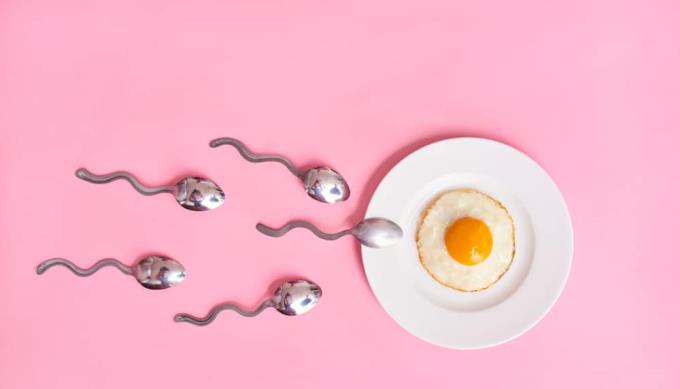Every couple has a different time to conceive. Some pairs only take a month, others take a year or so. So how long does it take to conceive successfully?
Couples newly married or planning to have a baby often have questions about how long it takes to conceive , especially how long it takes to conceive successfully. To answer this question, please refer to the following article!
Time of successful conception is how long?

According to BabyCenter , a couple of good reproductive age is more likely to conceive within a year. For example, out of 100 couples who want to conceive naturally will have:
20 pairs of successful conception within 1 month
50 pairs of successful conception within 1 month to 6 months
15 pairs successfully conceived within 6 months to 1 year
10 pairs successfully conceived within 1 year to 18 months
5 pairs successfully conceived within 18 months to 2 years
Remember that these statistics are averages only. Some couples are able to get pregnant quickly, possibly within a few months, while for others it may be longer.
It is normal for some couples to take two years to get pregnant. This doesn't mean you're having fertility problems. About half of couples who don't get pregnant within one year will conceive the next year, if they continue to want to get pregnant.
Factors affecting conception time
Both men and women can experience a number of factors that affect fertility . In addition, a number of distinct health conditions in the sexes can affect this process.
General factors
Overall, there are many factors that can affect the timing of your conception, such as:
Your diet: some foods may make it easier for you to get pregnant, while others interfere with this process;
Age of conception: The ability to conceive successfully decreases with age in both men and women. Women are most likely to conceive in their 20s, and drop to 12% at 35, according to PLoS One. By the age of 40, this number is only 7%.
Underweight or overweight
Frequency of sexual intercourse
Female factors

According to RESOLVE, about 12% of women have difficulty getting pregnant naturally. The most common cause is ovulation, because if you don't ovulate, the sperm cannot conceive. Ovulation problems can be caused by polycystic ovary syndrome (PCOS) or premature ovarian failure (POI) .
In addition, the fallopian tubes are also capable of preventing eggs from meeting sperm. The causes of this condition can be due to:
Pelvic inflammatory disease (PID)
Endometrial optimism
Surgery for an ectopic pregnancy
Additionally, uterine abnormalities can also prolong conception and make it more difficult to conceive.
Male factors

Male infertility can be found in 8% of couples trying to get pregnant. Causes of male infertility include:
Varicose veins of the spermatic veins (also known as varicose veins, scrotal varicose vesicles)
Problems with sperm shape or movement
The effects of alcohol, smoking or drug use
Chemotherapy or radiation therapy to treat cancer
Hormone imbalance
Rare causes like Klinefelter's syndrome
Factors not determined
According to the American Society of Reproductive Medicine, about 5-10% of couples experience infertility with no known cause . This can be caused by problems with sperm or egg quality, or physical problems, but a doctor cannot make a definitive diagnosis.
How to shorten conception time
In order not to prolong conception, you can learn the following tips:
Health check

First, make sure you are healthy enough for conception and pregnancy. If you are under the age of 35 and wish to have a baby within a year, you should consult your doctor. Your doctor may suggest a number of early testing methods to suggest ways to shorten the duration of conception.
If you are over the age of 35 and have spent 6 months trying to have a baby but with no success, you or your husband are more likely to have fertility problems, such as hidden testicles or money. history of polycystic ovaries. Whatever your situation, it's best to see your doctor before conceiving.
Have sex the right way

In addition, you should also be more comfortable with sex. Having sex once a week may not be enough, but having sex too often will also reduce the quality of the husband's sperm. Instead, you should have sex every 2-3 days.
You may also have heard about ovulation dates , using an ovulation test or based on ovulation markers for easy sex to get pregnant. However, fertility experts advise against being too rigid in this regard as it can make having a baby more stressful than necessary. Besides that, your chances of natural conception will be lower if you only have sex these days.
Apply measures to become pregnant
You can try the 7 easy-to-conceive tips introduced by aFamilyToday Health to get pregnant faster. In addition, there are also natural remedies for fertility you can choose from in addition to medical interventions.
Hope this article has brought you many useful information about the time of conception. Don't be too nervous, let it all go natural and enjoy your life and love, as this is the best way to increase fertility!
















